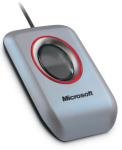The Concept of Personal Digital Liquidity as a Right
Personal Digital Liquidity is a concept created by Nicholas McGill, an aspiring IT consultant in Northern California designed to describe a person's right or strategy to choose and maintain technological solutions be it hardware or software that preserve consumer control over information, purchase decisions (steering away from the propietary), most importantly protects the consumer's ability to move quickly,effortlessly, and fluidly to alternative solutions.
Personal Digital Liquidity is an encompassing concept/strategy focused on technology to maximize a consumer or individual's options and choices and to maintain control over all aspects of their digital lifestyle by choosing solutions and products that provide the most flexibility and universal compatibility. Personal Digital Liquidity can be applied to all aspects of technology.
At any given time, a particular product or solution may beat all competitors or stand out, but it may place a heavy toll on a consumer's digital liquidity; limiting choices,options or control. However if the user is compensated by the quality of the product and there are alternative means of bypassing the restraints and thus restoring digital liquidity than it is a fair exchange. As a general rule of thumb an individual should guard their right to personal digital liquidity as closely as they guard their right to free speech. If it is easily given up then the consumer forfeits the freedoms of choice, flexibility, and control.
For example, the ipod is hands down a great product. However, the software it forces upon users (itunes) takes away the flexibility of using different types of media files used (extension ie mp3 vs aac) and the software takes away the control and distribution of a user's library. This software clearly takes away the consumer's personal digital liquidity when it comes to media. However, there is hope. Because of its mass consumption, the ipod has its own hacker following and there is software and tools that can be used in place of itunes thus restoring the consumer's digital liquidity. The ipod hacks and the large community dedicated to keeping control of their media while using the ipod make it a worthy purchase.
Flexibility can be described as the quality of being adaptable or variable. If a user can save, edit, convert, change information or configuration to many formats and is not obligated to any particular form it is said to be flexible.
For Example, on the software side, audio programs like Winamp, Audacity and others allow users to open, save and edit in many different formats. Mp3 players like ipods and others that play many different formats and do not force or require you to stick to their software to manage your digital content. Itunes and Windows media player attempt to restrict the consumer's choices and flexibility by forcing them to use their proprietary (exclusively owned and controlled) software and encode content in formats that are controlled by the companies. Not only do these programs control the encoding of the files the software also attempts to control the entire library and distribution of files by governing when, where, how often, and how many times content can be copied or distributed.
USE

WINAMP http://www.winamp.com
 AUDACITY http://audacity.sourceforge.net/
AUDACITY http://audacity.sourceforge.net/
DO NOT USE/BE WEARY OF:
ITUNES
 WINDOWS MEDIA PLAYER
WINDOWS MEDIA PLAYER
On the hardware side, SD memory is a competitive standard memory solution, meaning it is used by many different manufacturers and in many different products at the same time. Companies that manufacture products with SD slots honor the consumer. SD is can be used in many different products at the same time, including holding images from my digital camera, songs for my mp3 player or computer, and documents and files for my computer all at once. Sony on the other hand has its own memory solution called Memory Stick and its smaller buddy the Memory Stick Duo. They attempt to limit the consumer's choice by making Memory Stick the only memory option for their products cameras, mp3 players etc.
USE:
SD MEDIA

CD'S,
 DVD-R, DVD+R, DVDRW,
DVD-R, DVD+R, DVDRW,
DO NOT USE/BE WEARY OF:
 SONY MEMORY STICK
SONY MEMORY STICK

ZIP DISKS and similar iomega products
Universal Compatibility refers to a solution product, or format's ability to be used on most if not all platforms or can be read, edited, manipulated, and shared across most software or hardware solutions in its field.
On the Software side for example, a text file can be read and understood by Windows, Linux, and Mac operating systems and most others as well, it is therefor universally compatible and maintains the consumer's personal digital liquidity. A program in the form of a cab installation file for the Pocket PC OS may be ran from a Pocket PC and could install a program may not be so easily. Using a program that is limited to a specific version, or operating system or is otherwise not universally compatible limits or reduces a consumer's personal digital liquidity.
An example on the hardware side would be the contents of an SD card or a CD can be read by any platform. Most USB devices are universally compatible. However, the Microsoft Fingerprint Reader for example may only work on a Windows operating system with the Internet Explorer browser, and is not compatible with other browsers or operating systems. This loss of compatibility reduces the choice of the consumer and thus reduces the personal digital liquidity of the consumer because the individual is forced to using the compatible browser. If the reader worked with all browsers it could be called universally compatible and would maintain personal digital liquidity.If the limitation is beyond the scope of possibility for the user (ie they'd never use a different browser or cannot) then there is no loss
USE:

USB PRODUCTS that are universally compatible
DO NOT USE/BE WEARY OF:

Microsoft Fingerprint Reader because they pretty much try to force you to use their browser, Internet Explorer instead of making their hardware universally compatible and giving the consumer the choice.
















